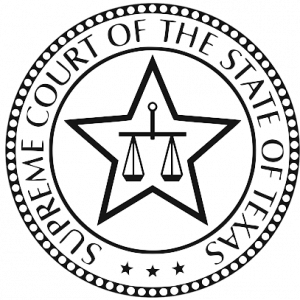 In an important ruling for Texas businesses, the Texas Supreme Court has unanimously ruled that the TCEQ misapplied the Texas property tax’s exemption for specified pollution control equipment.
In an important ruling for Texas businesses, the Texas Supreme Court has unanimously ruled that the TCEQ misapplied the Texas property tax’s exemption for specified pollution control equipment.
Since 1993, the Texas Constitution has included a provision which authorizes the Texas Legislature to exempt from ad valorem taxation “all or part of real and personal property used … wholly or partly … for the control or reduction of air, water or land pollution.” This provision is implemented by Section 11.31 of the Texas Tax Code, which is administered by the Texas Commission on Environmental Quality. (See the rules at Title 30, Chapter 17 of the Texas Administrative Code.) If the Executive Director of the TCEQ determines that the equipment is used wholly or partly for pollution control, he issues a “positive use determination”; in the event it does not, the Executive Director issues a “negative use determination and rejects the application for the exemption. In 2007, Section 11.31 was amended at 11.31 (k) to list several items of equipment that are presumed to be pollution-control equipment, including “heat recovery steam generators” or HRSGs. This equipment is used by powerplants to reduce nitrogen oxide emissions that are the product of generation of electricity. Several applications were submitted to the TCEQ by the Brazos Electric Power Cooperative, seeking a tax exemption for its HRSG units. In July 2012, the TCEQ denied these applications, with the flat declaration that HRSGs are not pollution-control equipment—“they are used solely for production.” The Brazos Cooperative sued the Commission, and on May 3, 2019, in the case of Brazos Electric Power Cooperative, Inc. v. TCEQ, the Texas Supreme Court issued a unanimous opinion reversing the Commission, and the lower court (the Eight Court of Appeals, sitting in El Paso) that affirmed the Commission’s action.
The Court held that the TCEQ abused its discretion in issuing negative use determinations; rather it must grant the exemption, at least in part, until it exercises it authority to remove HRSGs from the Section 11.31(k) list—which it has not done. Under the plain meaning of the law, the Commission must issue a positive use determination to the Brazos Electric Power Cooperative, using its statutory discretion to decide how much of an exemption is appropriate under the law.
 Gravel2Gavel Construction & Real Estate Law Blog
Gravel2Gavel Construction & Real Estate Law Blog


